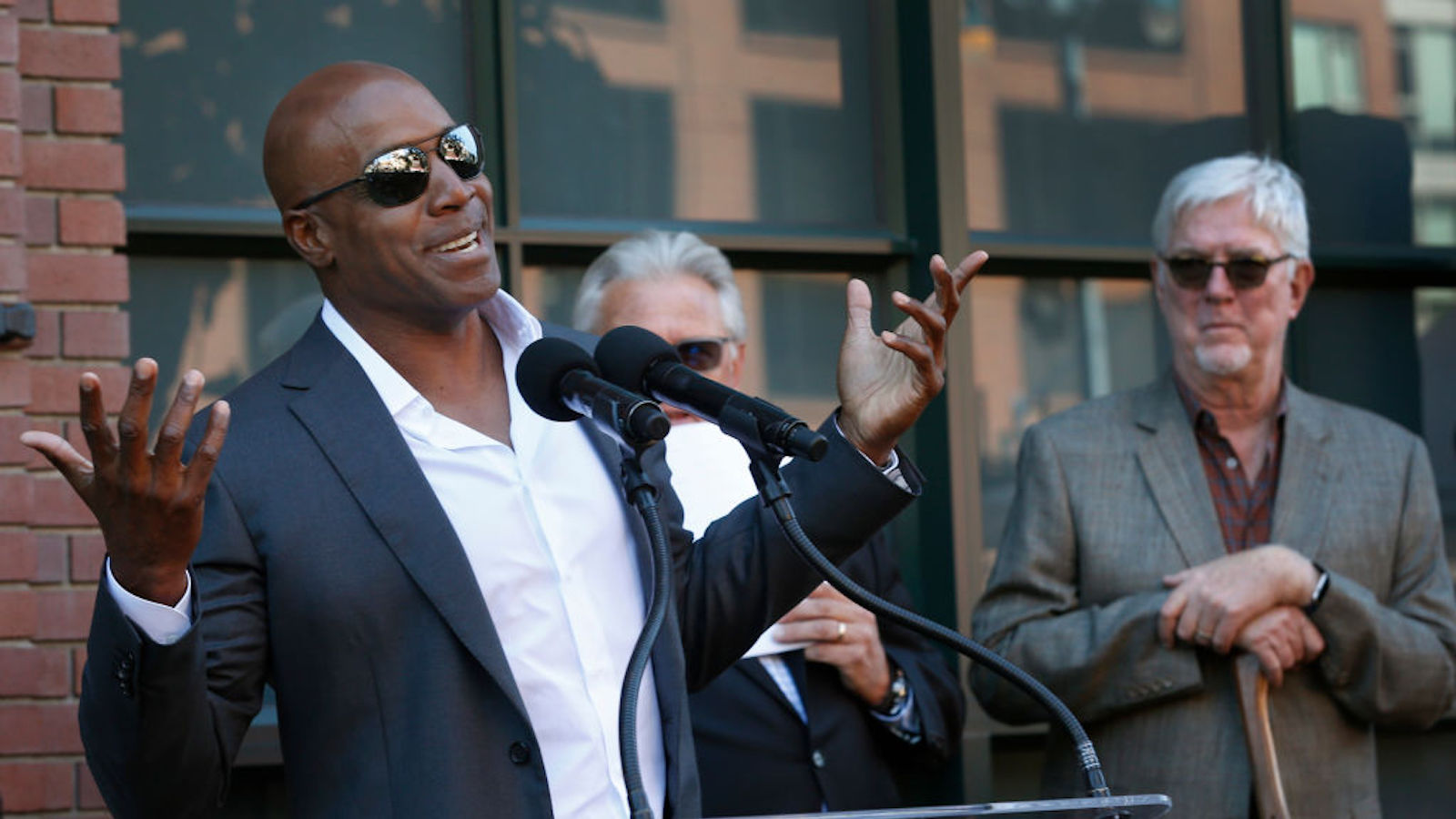The nostalgia of baseball is never too far from the business of baseball, which is why we've all been led back to Barry Bonds, Roger Clemens, Curt Schilling and the Hall of Fame, a story that never gets old, or for that matter, better.
Now they join Albert Belle, Rafael Palmeiro, Fred McGriff, Don Mattingly and Dale Murphy on the Contemporary Baseball Era Players Committee ballot for players who have been out of the game for 15 years but didn't get the 75 percent vote required for induction by the Baseball Writers Association of America. And we say "join," we mean it as a euphemism for "monumentally overshadow."
The eight were named by the Hall's Historical Overview Committee for the Contemporary Players Committee to vote on—in other words, the HOF tells the HOC to give names to the CBEPC for approval or rejection in what can only be called a Mardi Gras of initialed patronage.
The CBEPC last provided us with the joyous election of Harold Baines, a fine player who never got much voting support by the writers, and whose name is both enshrined and besmirched by the way he got in—mostly through vigorous lobbying from his team's owner Jerry Reinsdorf and his manager Tony La Russa. This happened back in 2018 when the CBEPC was known as the TGEC (the Today's Game Era Committee), and while nobody knows the full makeup of the CBEPC (the HOF won't announce the members until roughly 10 days before BWM—sorry, baseball's winter meetings, there is no guarantee that the back-room arm-twists of four years ago won't be repeated or even enhanced.
And since we're only talking about 16 people here, the names of the committee people are more important than the candidates because it only takes five "nos" to scuttle a candidate, and only some spirited purply-faced lobbying to get a candidate over with the requisite 12, which is how we got to Baines. It is, by the way, noteworthy that reliever Lee Smith got in with a unanimous vote in that same meeting, but nobody ever talks about him in their rush to grouse about Reinsdorf, La Russa, and Baines.
All this is tedium-soaked preamble to the great likelihood that McGriff, Murphy, and Mattingly are far likelier to attain the 12 required votes than Bonds, Clemens, or Schilling, which dredges up baseball's recurring nightmare of how it continues to mangle the historical framing of the PED era. This is a bloated way of asking the musical question, "How does baseball keep these guys at arm's length while keeping the money they generated for the industry?"
By now, anyone still interested in the subject has long ago made up and ossified his or her mind, so that there will be no new nuanced examination of the topic—just more decades-old posturing of old opinions. The ensuing faux-debate will only serve to remind the casual fan that the sport is governed by fossils in training for the ultimate prize, a future as an untapped petroleum product on a dead planet. With any luck, the meteor will sort out all the arguments on all sides before 2025, when all the committees meet again for another round of frenzied renaming.
The voting rules allow each of the 16 CPEBCs to vote for three candidates, so the maximum number of inductees would be four. This rules out the easiest way for baseball to avoid another contentious public spitfest—suspending the rules and inducting everyone so the committee members can adjourn for rounds of drinks and backslaps, having finally tidied this boiled-over mess of stovetop caramel and Gorilla Glue.
The second easiest path is for nobody to get in, in which case everybody yawns and forgets the topic for three more years, at which time several and maybe even most committee members will be retired, replaced, or achieve the bliss of room temperature. See Meteor, Flaming Collision, Eradication Of All Life two paragraphs above.
But if Armageddon remains elusive, we're all back to Bonds, Clemens, and Schilling in three years, and the system that fails to make sense of the Hall of Fame but always succeeds in maintaining the status quo that comes with rewarding friends and punishing enemies.
Oh, and we forgot one more important byproduct: to create more committees and the anagram thickets that come with them. Because that's working out magnificently.






